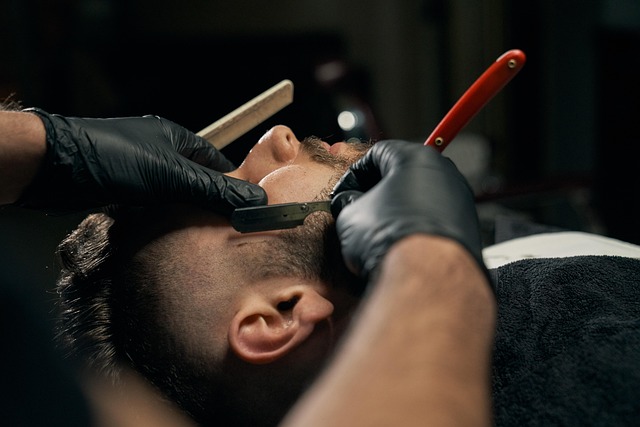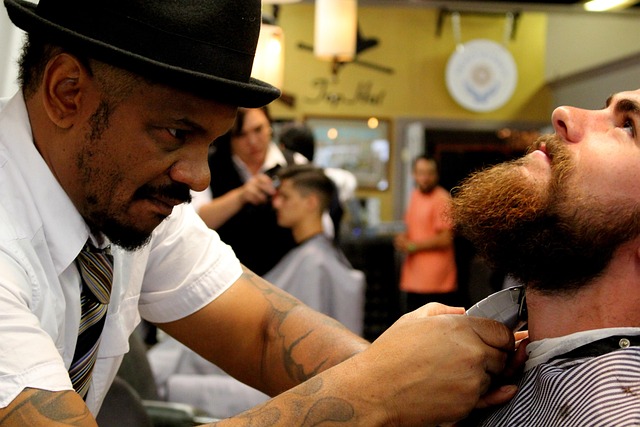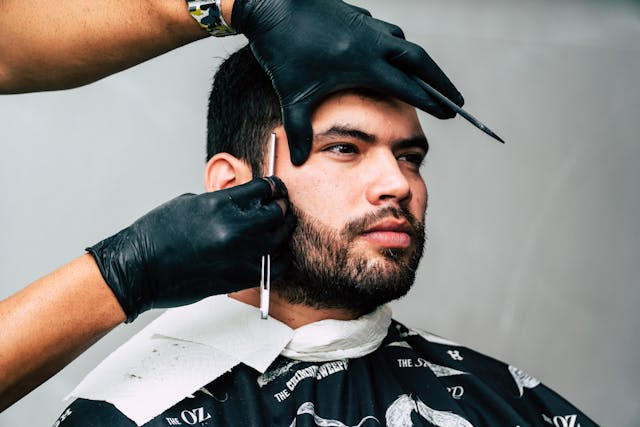Most men are curious about how to grow a beard and get a fuller, well-manicured appearance. Beard growth depends on genetics, lifestyle, and good care, but there are simple steps that can promote better results. Choosing a healthy diet to a clean beard with oil and facial cleaning, every aspect is important. With consistency and time, anyone can enhance their prospects of growing a denser beard. Understanding the proper methods makes the process more rewarding and easier.
Causes Failure to Get Beard Growth In Man

1. Genetics and Family History
The largest reason for patchy or thin beard growth in men is genetics. If your father, grandfather, or immediate male relatives had a hard time with thick beard growth, you might experience the same. Genetics determine hair follicle density, thickness, and growth rate. Some men simply have fewer facial hair follicles by nature and consequently sport thin or uneven beards. Unfortunately, this is something that cannot be entirely altered, but knowing your genetics goes a long way toward managing expectations. Although you might not be able to sport a lush beard, taking care of your appearance and following a healthy lifestyle can ensure that you take whatever growth you naturally get to an optimal level.
2. Hormonal Imbalance
Testosterone and dihydrotestosterone (DHT) are vital in beard development.Men with lower testosterone and DHT levels tend to grow their facial hair more slowly or thinly. Hormonal imbalances can result from stress, illness, or inappropriate lifestyle choices. If your body is not producing sufficient testosterone or is not efficiently converting it into DHT, your beard will look patchy or grow unevenly. A hormone test with the help of a doctor can diagnose the problem. In some cases, lifestyle changes, supplements, or medical treatment may support better hormonal balance and improve beard growth over time.
3. Poor Nutrition and Lifestyle
A poor diet lacking essential vitamins and minerals can limit beard growth.Hair follicles need nutrients like protein, vitamin D, biotin, zinc, and iron to function properly.If your diet is mostly processed food with little nutritional value, your beard may not grow as expected. Lifestyle routines like smoking, heavy alcohol consumption, and sleep deprivation also compromise hair health. Men who exercise regularly, consume well-balanced diets, and maintain adequate hydration experience improved beard growth. Enhancing nutrition and overall lifestyle not only enhances your beard but also improves overall health and self-confidence.
4. Stress and Mental Health
Stress is a subtle factor that can affect beard growth negatively. High levels of stress impact hormone secretion and may actually cause loss of hair on both the face and head.The stress hormone cortisol disrupts testosterone levels, directly affecting facial hair development.Anxiety, poor sleep, and ongoing stress can worsen the issue. Engaging in activities that reduce stress, such as exercise, meditation, or hobbies, can help balance hormones naturally. Taking care of mental health not only promotes healthier beard growth but also general well-being, so it’s easier for your body to perform at its best.
5. Skin and Follicle Health
Healthy skin is key to beard growth since hair follicles reside immediately beneath the skin. If your skin is dry, oily, or plagued by conditions such as acne or infection, your follicles can find it difficult to grow strong beard hair. Blocked pores and bad grooming practices can also slow growth.Cleaning the skin, exfoliating it, and moisturizing daily can be the perfect condition for facial hair to grow and be healthy.Other men also apply beard oils to condition the skin and the follicles. If the foundation of the beard—the skin—is in a healthy state, the beard growth automatically gets better, and the coverage becomes thicker and fuller with time.
5 Myths About Beard Growth

1. Shaving Makes Beards Grow Thicker
One of the most common beard myths is that shaving often makes your beard grow back faster or thicker. In reality, shaving only cuts hair at the surface and does not affect the follicle beneath the skin. Hair may feel coarser as it grows back, but thickness and speed are controlled by genetics and hormones, not shaving frequency.Believing this myth about beard growth causes men to shave more often, hoping for different results, but it just doesn’t work that way.
2. Everyone Can Grow a Full Beard with Time
Another common beard growth myth is that all men can grow a full, dense beard if they just wait long enough. Genetics dominate the development of beard density and pattern. Some guys simply have fewer follicles, and patchy growth occurs regardless of how long they wait. This beard myth frustrates a lot of guys who believe patience will do the trick, when in reality, beard potential is individual to each individual.
3. Beard Oils and Creams Can Instantly Boost Growth
One of the most common beard growth myths is that using oils or creams will suddenly cause facial hair to grow faster or thicker. Though good products may condition the skin and keep hair already present healthy, they are not able to grow new follicles or alter genetics. This myth of the beard usually tricks men into buying products that only enhance beard health, not growth. Grooming and skincare maintain look but do not substitute for natural growth components.
4. Young Men Can’t Grow Beards
Most individuals hold on to the beard myth that only older men are capable of growing a full beard. Though it’s also true that beard growth grows more powerful with age as testosterone levels settle, some young men are able to grow thick beards at as young as late adolescence. Conversely, some men continue to experience spotty growth well into adulthood. This myth of beard growth disregards the influence of genetics and hormones and makes age merely a tiny part of the process.
5. Beards Cease To Grow After Reaching a Certain Length
One of the beard growth myths is that facial hair grows no further once it has achieved a certain length.Actually, beard hair, just like scalp hair, grows in cycles.Every follicle also has a growth phase and a shedding phase. Some guys have shorter cycles, and their beard seems to have stopped growing, whereas others are capable of having super-long beards. The beard myth here is deceptive because beard size relies on genetics, hair condition, and general care, not a one-size-fits-all growth limit.
How To Grow A Beard: 6 Tips That Actually Works

1. Maintain a Healthy Lifestyle
If you’re wondering how to grow a beard, start by focusing on your overall health. Eating a protein-rich diet, exercising, and getting enough sleep improves blood flow, which boosts hair growth. Many ask how long does it take to grow a beard, but results vary—some see changes in weeks, while others may take months. A balanced lifestyle ensures stronger, thicker beard growth over time, making it easier to manage and shape as it develops
2. Clean and Moisturize Your Skin
Learning how to grow beard successfully starts with good skincare. Clean skin makes hair follicles breathe and minimizes the possibility of clogged pores. A mild cleanser and a quality moisturizer set the skin for new growth. Most men ask how long does it take to grow a beard; usually, patience is necessary because full results are different for all. Clean, moisturized skin enhances healthier, quicker beard growth and keeps itchiness at bay in the initial stages.
3. Patient and No Shaving Myths
Some of the most prevalent myths regarding growing a beard are that shaving is necessary for growth, with the myth that shaving regularly accelerates growth.This is false.Beard growth is determined by hormones and genetics, not shaving frequency.If you’re asking how long does it take to grow a beard, expect several weeks to months, depending on your growth rate. Consistency and patience are the real keys to success when trying to figure out how to grow beard properly.
4. Use Beard Oils and Natural Supplements

For those learning how to grow a beard, beard oils can make a big difference. They soften the beard, minimize dryness, and help with healthier growth. Biotin or vitamin supplements may also aid in hair growth. Most still wonder how long does it take to grow a beard—realistically, results may take some time.Regular application of oils and a healthy diet can accelerate visible improvement, allow you to grow beard with more confidence and success.
5. Manage Stress and Get Enough Rest
Stress can affect your hormones, and directly affecting how to grow beard successfully. High stress retards growth, whereas proper sleep and relaxation promote it. Men tend to ask how long does it take to grow a beard, but without adequate sleep and management of stress, growth tends to take longer. Meditation, exercise, and relaxation exercises will help. If you really want to know how to grow a beard faster, pay attention to reducing stress and sleeping well.
6. Trim and Shape as You Grow
While learning how to grow a beard, grooming is important. Trimming regularly keeps it in shape and eliminates split ends. In case you ask how long does it take to grow a beard, understand that a well-groomed beard appears thicker even during the growing process. Define lines and style your beard using a good trimmer. Understanding how to grow beard is not only about length—it’s also about keeping it neat and professional throughout the process.
Conclusion:
Growing a beard requires patience, good care, and a healthy life. Knowing myths, proper skin and hair health, and stress management guarantees denser, healthier growth. Regularity is the key to the maximum benefit.
FAQs:
1.How long does it take to grow a beard?
Beard growth depends on genetics and hormones. Some people get visible growth within a few weeks, while others take many months for a fuller beard.
2.Do beard oils cause hair to grow quicker?
Beard oils moisturize skin and hair, minimizing dryness and itchiness. They enhance health but won’t produce new follicles or bypass genetic growth patterns.
3.Do shaves thicken a beard?
No. Shaving merely cuts hair at the surface. Thickness and rate of growth are genetic and hormonal, not related to how often one shaves.
4.Can young guys grow a full beard?
Yes. Beard growth is based on genetics and hormonal levels. Some young men develop thick beards, and others experience patchy development until well into adulthood.





